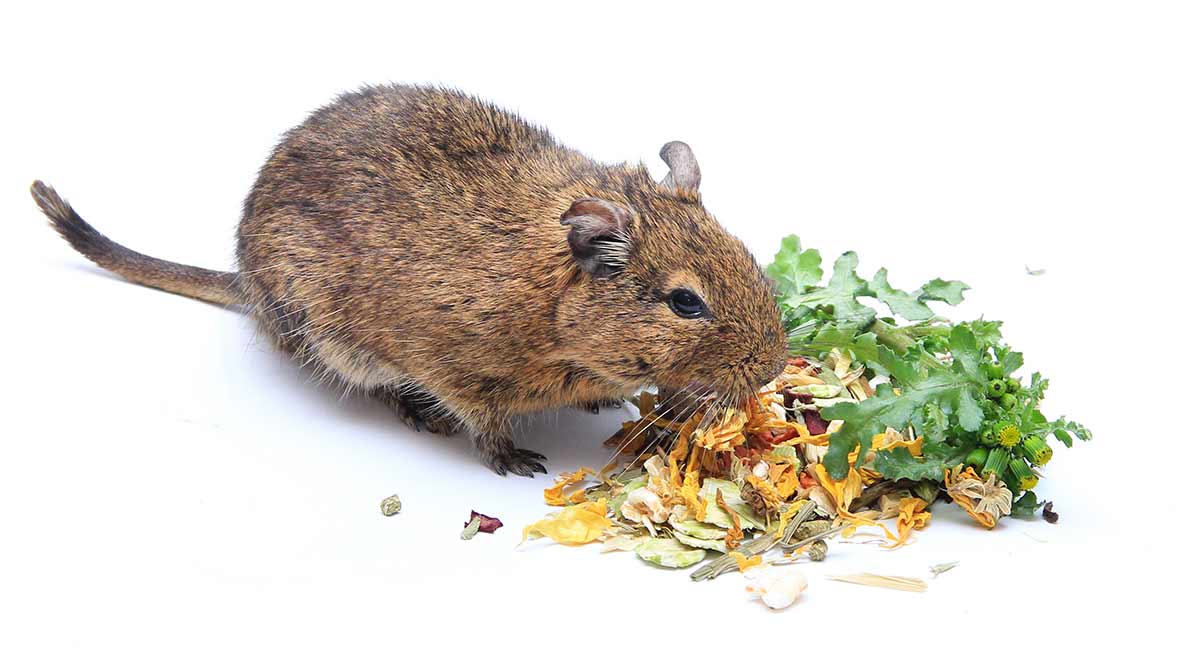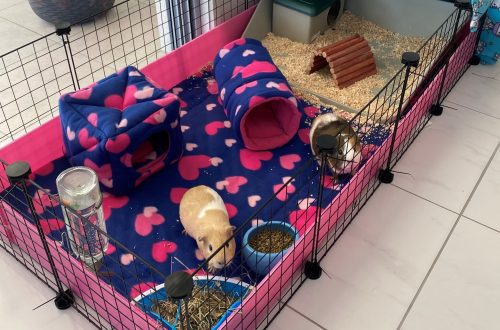
Feeding the degu
Decided to get a degu? Congratulations! These are very interesting and unusually smart rodents, focused on communication with humans. And so that they grow up healthy and please you for a long time, plan a diet for them in a timely manner, because this is the foundation of the foundations. What you need to know about feeding degus at home?
The basic diet of degus, also known as Chilean squirrels, includes:
– hay and plants (dandelion, clover, plantain),
– alfalfa,
— salad,
– fruits (mostly dried),
– cereals,
– as treats: berries (for example, wild rose, hawthorn), nuts (for example, peanuts), pumpkin seeds, sunflower seeds – in small quantities, etc.
If you are a supporter of the natural type of feeding, focus on these products. When in doubt, make it a rule to consult a specialist. Degus have a sensitive digestive system, and inappropriate food will cause great harm to the animal. The consequences of malnutrition can appear both immediately and after a long time – but they will definitely appear, so experiments are, of course, good, but not in our case.
In no case should you give degu dishes from the table, overripe fruits and sour-milk products. Chilean squirrels are prone to diabetes, so dried fruits and fat-rich nuts are best eliminated from the diet completely or given infrequently in small quantities.
It is very convenient to use special ready-made food for degus: choosing a high-quality line, you will definitely not go wrong in matters of feeding. The fact is that the composition of ready-made diets is carefully balanced for the needs of rodents and includes all the elements necessary for good health. The only clarification: we are talking about high-quality complete feed. Economical lines made on the basis of low-grade raw materials and having low nutritional value will not bring tangible benefits to the body.
For degus, it is recommended to select lines with a large amount of hay, grasses, bark and fibrous raw materials. This composition is the most consistent with the natural nutritional needs of rodents. The inclusion of carrots, beets, peas, as well as peanuts and sunflower seeds (in small quantities) will also be an advantage. Special attention should be paid to the “additional” functionality. For example, Fiory Deggy contains fruit oligosaccharides (FOS) to promote gut health, organic selenium to protect cells from free radicals, Yucca Schidigera to eliminate faecal odors, and more. your pet.
Try not to change feed lines unnecessarily. Diet changes are always stressful for the body. If you still need to change food, make changes gradually and smoothly transition from a small amount of new food (initially mixed with old) to its normal volume.
As a rule, the frequency of feeding and the amount of servings are indicated by the manufacturer on the food packaging. These guidelines must be followed. In general, degus are best suited for fractional feeding. The daily norm is divided into 4-5 feedings, between which there are approximately the same intervals. So the body absorbs food more easily, and the animal does not experience hunger or overeating.
Monitor your pet’s needs and remove uneaten food from the cage in a timely manner.





